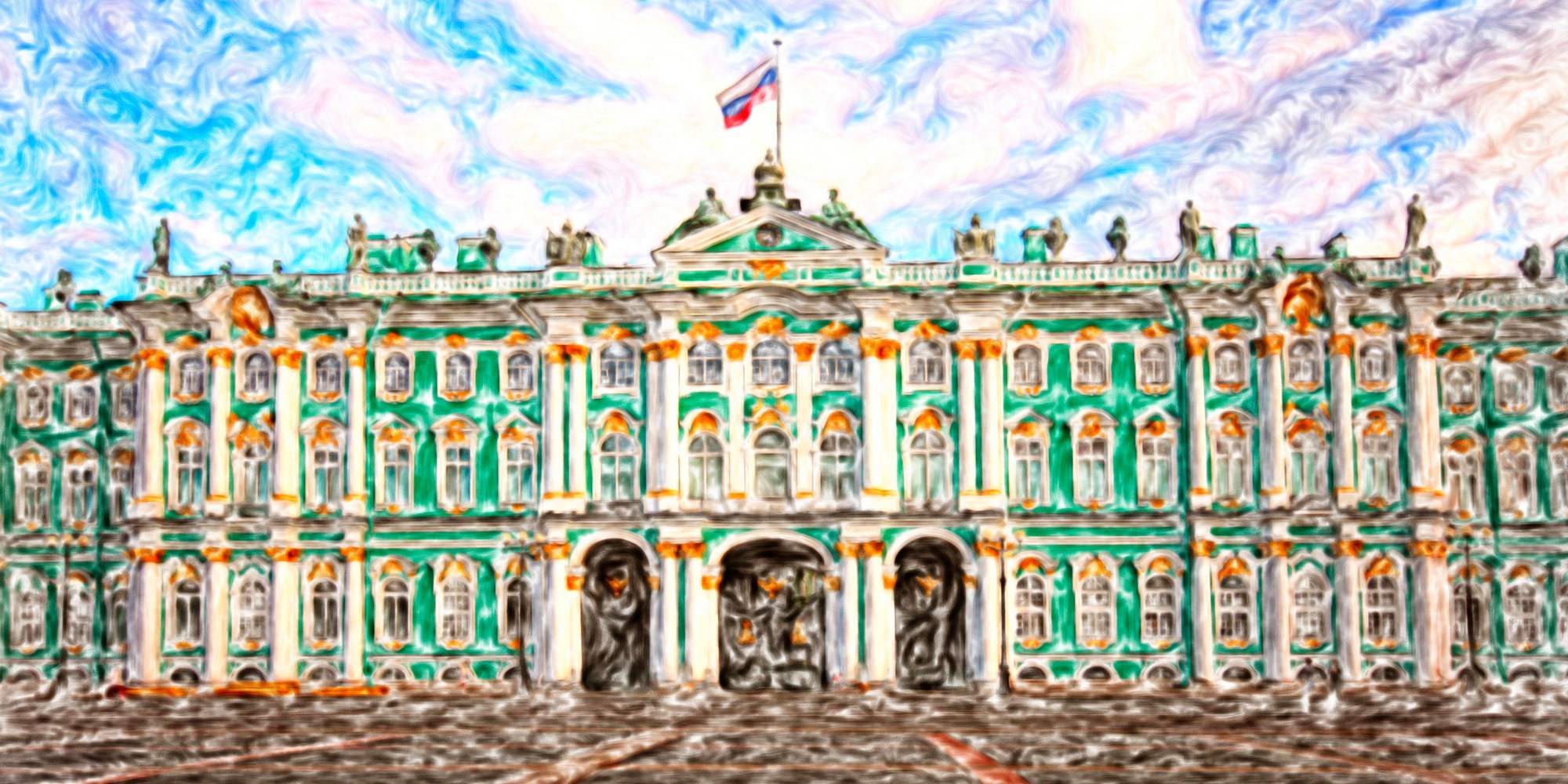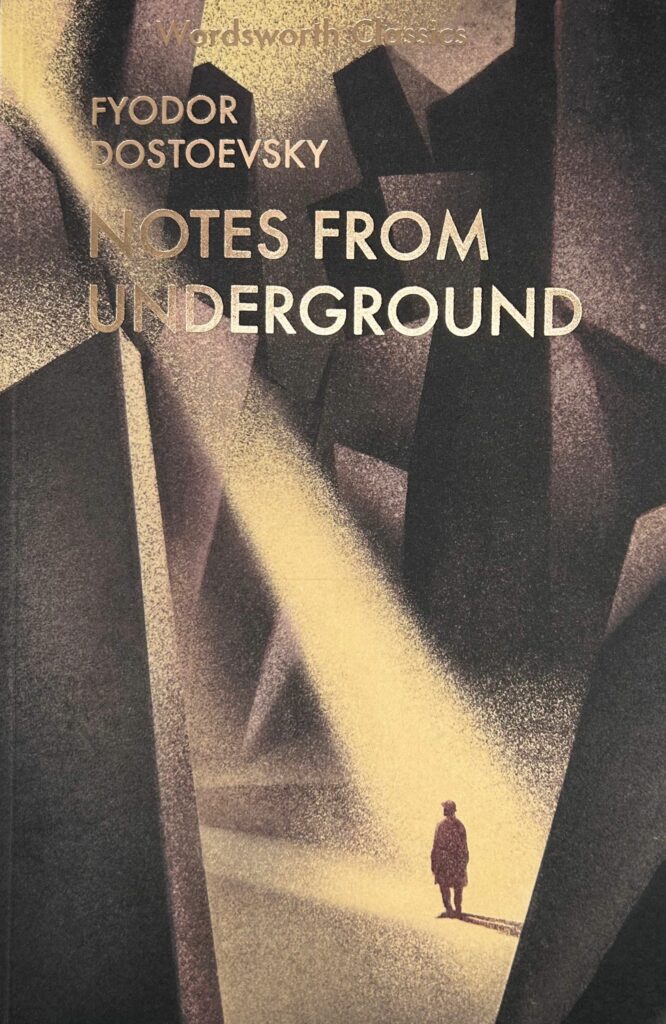
Book of the Week: Notes from Underground
David Stuart Davies writes on our collection of the short fiction of Fyodor Dostoevsky.
Here we have a volume, sometimes translated as Memoirs from Underground (1864) which is a comprehensive collection of the short fiction by the great Russian writer Fydor Dostoevsky (1821 – 1881). Its importance derives from the fact that more than the other works of fiction the author created, this presents a strong exposition of the Dostoevsky’s deep-seated philosophy and the innate complexities of the human condition.
This Wordsworth edition contains the novella Notes from Underground and a collection of short stories, which examine the thoughts and more particularly the dilemmas of those individuals who are considered irrelevant by society. In the novella the narrator refers to himself as the ‘underground man’, one of those apparently insignificant souls who are not seen or valued above the surface of life, in the mainstr eam of society. Academic critic David Rampton explains that in this approach to character, Dostoevsky ‘lays claim to his right to represent the marginal, the lowly, the dispossessed, the meek of the earth, and the need to find a new lexical register for humdrum details.’
eam of society. Academic critic David Rampton explains that in this approach to character, Dostoevsky ‘lays claim to his right to represent the marginal, the lowly, the dispossessed, the meek of the earth, and the need to find a new lexical register for humdrum details.’
In the novella, the unnamed narrator, one of the most remarkable characters in literature, is a former government official who has defiantly withdrawn into this metaphorical underground existence of his own volition. In full retreat from society, he composes a passionate, obsessive narrative that serves as a fierce attack on social utopianism, the ardent but impractical belief that one can create a perfect society, and an assertion of man’s irrational shifting nature. This final point is forcefully demonstrated by the narrator’s own essentially contradictory attitude regarding various aspects of life. For example, he believes that a successful society is one that alleviates pain and suffering and yet he also maintains that people need these restrictive hindrances in order to achieve some kind of happiness. He argues that removing pain and suffering from society would take away freedom and restrict the ability to live life with a free will rather than it being dictated by the state. In essence, the underground man is an everyman who has had the restraints on his thinking and perceptions of the world removed so that he can appreciate the contradictory nature of living. While this complex psychological dialogue ensues and is touched on in the other stories in the collection, Dostoevsky subtly infuses his narratives with fascinating richly drawn characters while exploring the dark areas of the human psyche. This focus on the irrational in human nature was very much a new thought at the time of writing, an aspect of personality which has later been explored by psychiatrists such as Freud and Nietzsche. Critics now see that Dostoevsky’s perceptions highlight the spiritual crises of our own time. This book is one of those rare works of fiction that sets the reader to look into their own beliefs and concepts.
While it cannot be denied that the narrator can be regarded as the most glum and exasperating characters in all literature, much of this air of grim pessimism must in some part be due to the author’s own unfortunate experiences. At the age of twenty-six, Dostoevsky became active in socialist circles. His father was murdered by his own serfs while he was away in school. Another experience that greatly affected the author was his arrest and imprisonment in 1849 for his participation in a group that illegally printed and distributed socialist literature. After spending eight months in prison he was sentenced to death and told he would be shot, but this was just a ploy by the authorities meant to punish prisoners. He then spent four years in a Siberian labour camp before serving in the military for a further four years. It was with the publication of his great novel Crime and Punishment (1866) that brought about a reversal of fortunes, earning him both popular and critical success. However, the effect of his earlier dark days is reflected in the tone and substance found in Notes from Underground.
The impact of this powerful and challenging book still radiates in the artistic works by other writers had been directly influenced by it. For example Franz Kafka’s The Metamorphosis (1915) and Ralph Ellison’s Invisible Man (1952) and more recently Notes from Underground by the English writer Roger Scruton, which is set in Prague in the 1980s and follows a young Czech writer, Jan Reichl who becomes involved with an underground intellectual scene.
While it cannot be denied that Dostoevsky’s book is far from a cheerful read, it does have rare moments of humour and is filled with a whole company of interesting and bizarre characters and intriguing scenarios, which draw the reader into his shadowed world. Also while all the stories in this volume encapsulate the themes and ideas reflecting the author’s view of the world, they are also individual entities and one can dip into the book at random and enjoy it in this fashion.
Main image: Watercolour painting of the Winter Palace in Saint Petersburg, Russia. Credit: David Monette / Alamy Stock Photo
Image above: New cover design for our edition
Books associated with this article
